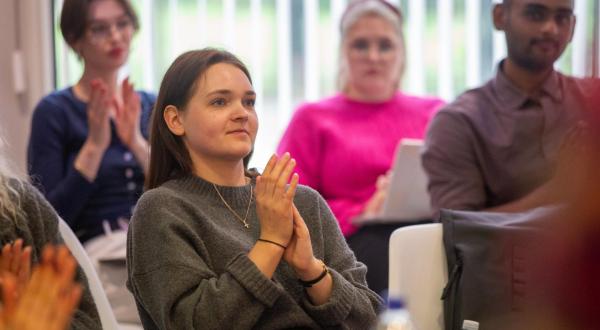November 25th – International Day for the Elimination of Violence Against Women
Preventing and responding to violence against women is a human rights, gender equality, and public health priority. In every country and culture, more action is needed to ensure women in all their diversity live a life free of violence and coercion.
Women's rights activists have observed 25 November as a day against gender-based violence since 1981. This date was selected to honour the Mirabal sisters, three political activists from the Dominican Republic who were brutally murdered in 1960 by order of the country’s ruler, Rafael Trujillo (1930-1961).
Finally, on 7 February 2000, the General Assembly adopts resolution 54/134, officially designating 25 November as the International day for the Elimination of Violence Against Women and in doing so, inviting governments, international organisations as well as NGOs to join together and organise activities designed to raise public awareness of the issue every year on that date.
This International Day for the Elimination of Violence Against Women, followed by the 16 Days of Activism against Gender-Based Violence, WHO is strengthening our commitments to address violence against women.
In 2021, WHO and partners released data from the largest ever study of the prevalence of violence against women. The report, supported by the WHO-UN Women Joint Programme on violence against women data, shows that 1 in 3 women across their lifetime are subjected to physical or sexual violence by an intimate partner or sexual violence from a non-partner. Two years of pandemic measures such as lockdowns and disruptions to vital support services have further increased women’s exposure to violence.
In every country, policy-makers, health care managers and advocates also have a role in strengthening their health system response to violence against women in every country. This Resource package for strengthening countries’ health systems response to violence against women includes tools and processes for developing national protocols and guidelines, updating training materials and working with different sectors.
The ongoing war in Ukraine continues to take a toll on the well-being of millions of women, girls and young people. Access to livelihood opportunities and basic services, including life-saving sexual and reproductive health care and information, has been severely disrupted. Gender-based violence is also pervasive, but cases continue to be under-reported.
As the Russian invasion erodes the security of Ukrainians across the country, the risk to women and girls is two-fold. Cases of conflict-related sexual violence in particular are on the rise. Rape (usually gang rape, sexual torture, forced nudity and other forms of abuse) have been documented by journalists, human rights organisations and law enforcement agencies. The true scale of this violence is not yet known. But what’s clear is that its impacts will be lasting: will have to work with the consequences of [conflict-related sexual violence] for many years to come.
(UN, 2022)
More information:
WHO International Day for the Elimination of Violence against Women
UNiTE! Activism to End Violence against Women & Girls!
Related news
 18 Student teams to start developing their ideas in B-Space incubation programmeFor RSU Employees, For Students, Innovation, B-Space
18 Student teams to start developing their ideas in B-Space incubation programmeFor RSU Employees, For Students, Innovation, B-Space


